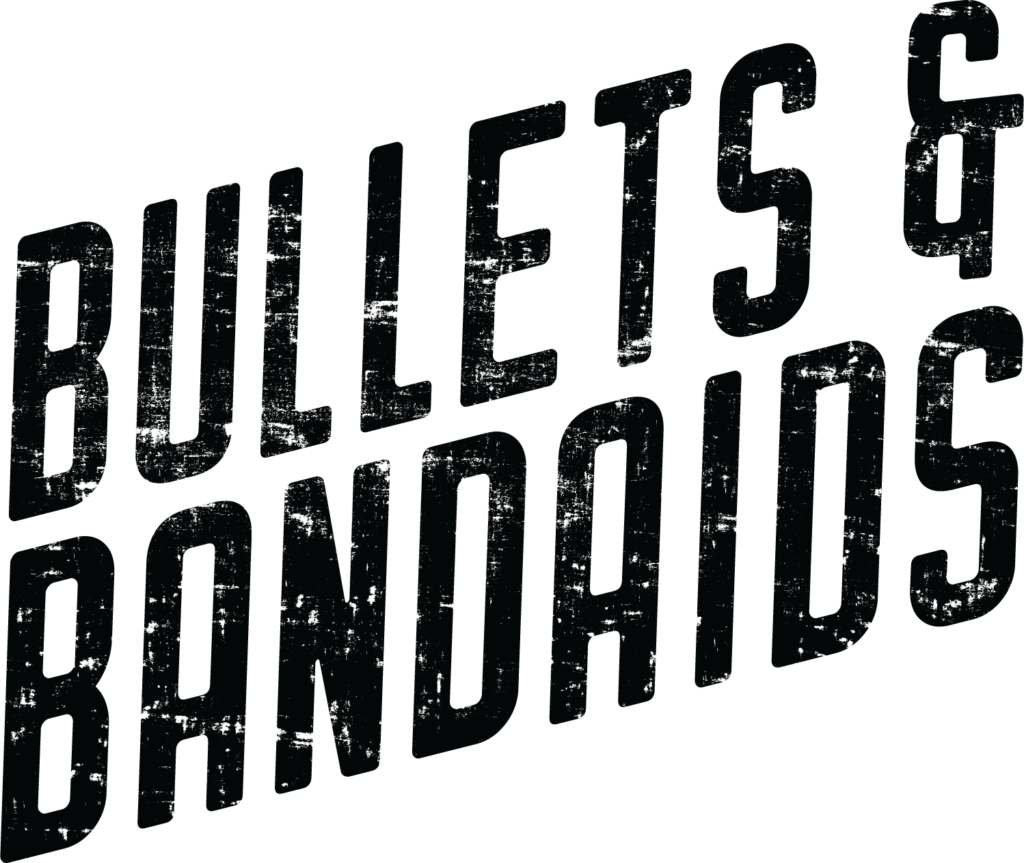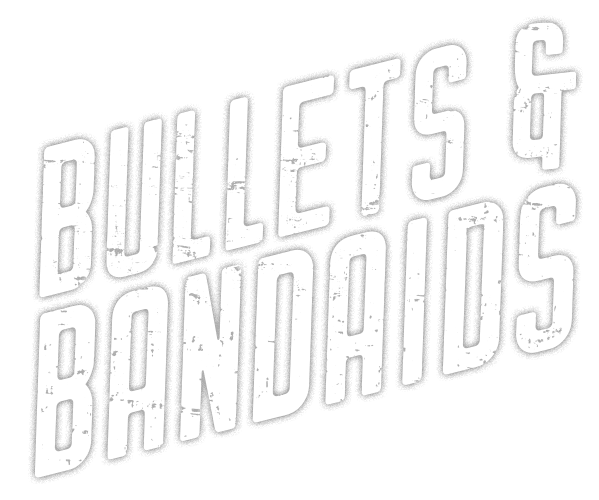
Veteran: Luke Brannon
Writer: Luke Brannon
Artist: N/A
Medium: N/A
Show: Vol. 1
It was the 16th of December. The Germans had unleashed the greatest counter-offensive of World War II, now known as The Battle of the Bulge. My unit, D Co., 1st Battalion, 395th Inf. Regt., was part of the 395th Regimental Combat Team who began an offensive; a drive through the Siegfried Line to secure the Ruhr Dams.
It was bitterly cold and everything was covered with a heavy blanket of snow. We had advanced several miles encountering moderate resistance from the fortified positions, never imagining that all hell was about to break loose. We were a heavy-weapons company and our squad was heavy machine gun, attach to A Co.. Our mission was to provide cover fire for the riflemen advancing against Kraut pillboxes. Then the artillery hit.
The barrage began early that morning. All we could do was dig in and cover up the best we could. When the order came to pull out, it was a kind of shoot-and-run situation. We were ordered to throw our 30 cal. Machine gun onto a weapons carrier, which promptly left, leaving all of us with only our side arms. In my case, it was a carbine rifle.
To let the truth be known, we were literally running for our lives. We, the “underlings,” later found out that we had been cut off from the rest of the division and were partially surrounded. We were definitely in a forced march situation, in a run-and-shoot defense. However, we were successful in getting out and back to the relative safety of Elsenborn Ridge.
Eight days later. Christmas Eve. We were still undergoing the most fearsome artillery fire of the war, suffering numerous casualties from it. Our machine gun position was entirely laid out. All we needed was the machine gun. They said “one more day.” We didn’t know if we had one more day on the line, though.
Because of our reinforcements, we were able to go into the town of Elsenborn to attend a Christmas Eve service and to spend the night in whatever shelter we could find. We gathered up our “fart sacks” and off we trudged through the heavy snow. We marched toward sanctuary for an all-too-short reprieve, prayers garnished with artillery fire and occasional strafing by ME-109s. We got into Elsenborn a little before dark and located an abandoned house that still seemed structurally sound. Because the entire town had been evacuated long before, the shell of the buildings carried a hollow echo. It was a combination of store front, kitchen, and living room with two bedrooms upstairs. All of the food items in the store area had been stripped before we arrived; everything except for a barrel of rotten apples that could not be eaten. Instead, they gave off a mouth-watering aroma that made all of us, who hadn’t eaten in 4 days, even hungrier. A quick search of the area turned up no food, but there was a cow in the back shelter and a rooster that was half-starved himself.
It grew dark and the Chaplain had summoned us to his quarters for the Christmas Eve service. It was a partially destroyed house that had been rigged with an Army blanket over the door for privacy. Inside, he’d arranged a table at one end of the room for an altar, with a table cloth and one lone candle that provided the only light for the room. There was no other furniture in the room, so the ten of us stood with our rifles slung over our shoulders and our helmets in our hands. Dirty, unshaven soldiers with heads bowed, solemnly waiting for any words of assurance that might be forthcoming.
Our regular chaplain had been killed 8 days earlier by German artillery, so this time our chaplain was a stranger to me and a Catholic. I am and have always been a Methodist, but at this time and place it mattered not what denomination you were. We were all Christians looking for the hand of God to guide us through this terrible ordeal. The service itself was very brief, due to the constant interruption by shells landing in the village. And so, with God’s blessing, we went back to our store-house for the night.
Hunger was our first priority. We went out back to the cow shed to try to milk the cow, but she had not been milked in days and her udder was swollen and hard. An attempt at milking her produced nothing but a puss-like substance that made us all sick to look at. The only option then was either to kill the cow or rooster and butcher it for meat. Time and lack of knowledge on how to butcher a cow made that option impractical, so we took the rooster.
We found an old enamel chamber pot and cleaned it out as best we could. We packed it full of snow and built a big camp fire in the old caste iron stove in the kitchen area for hot water. It was an easy job to catch the rooster, enticing him with a rotten apple peel. The poor thing probably hadn’t eaten longer than we had. Anyway, one of the guys wrung the rooster’s neck, plucked the feathers off, and cleaned him out as best as he knew how. At that point in time, it was good enough.
The fire was good and hot and the water was boiling, so into the pot he went. All of us were beginning to salivate, anticipating eating boiled chicken. All of a sudden we heard an airplane coming and just as swiftly heavy machine gun fire began to hit out building. It was bedlam everybody diving for cover under or behind anything they could find. And then total silence.
We waited for another few minutes and began to stir around again when here he comes again from the other direction, slamming those shells into our house, making us scramble for cover again. This time we waited a little longer, calling out to each other to see if anyone was hit.
This time our airborne assailant was gone, but so was our supper. While we were ducking and diving, all our water had boiled out of the pot and our rooster was burned black. It was totally ruined. No food tonight. Meanwhile, someone had gone outside to relieve himself and had come running back in, shouting “Hey, come look at this!” We all ran outside and, to our surprise, discovered why we were the target for the strafing attack. Sparks were flying out of the chimney at least ten feet high, creating a beacon that could probably be seen for miles. Needless to say, we immediately doused the fire and killed any chance of a warm night, much less a warm meal. The only thing to do was to find a place to put out our bedrolls and get what rest we could.
I decided to go upstairs to sleep, as did one more guy whose name I either didn’t know or have long forgotten. I laid my sack out in one bedroom next to the chimney, which still had some warmth in it from our fire downstairs. I was so hungry I couldn’t sleep. I decided to poke around some more, so with my Zippo lighter for a lamp, I discovered a narrow door that opened into a long narrow closet that was only wide enough for shelves down one side.
There were all kinds of old empty jars and bottles and rags. Then I spotted one jar that looked familiar. It was a quart sized mason jar- one of those with the glass top and wire clip that folds over to hold the top on, with a rubber gasket between. I couldn’t believe my eyes as I held my lighter closer and closer. I could see inside that there were four big, plump chicken drumsticks that had been baked and seasoned with pepper and preserves for the future.
I must have hollered or whooped or something because the other guy upstairs came charging into the room, saying “What’s the matter?” When I showed him the jar, his eyes grew as big as mine “This has got to be a booby trap. The Krauts have occupied this village and they probably poisoned this jar of chicken.”
By this time, the other guys from downstairs had heard the commotion and were standing around in disbelief. Some thought it might be poisoned and some did not. I said “I don’t know how much you guys know about preserving food, but if this jar fizzes when I pull this rubber ring out, I’m gonna eat this chicken.”
So, as all eyes were focused on this jar of chicken, I slowly pulled the rubber ring and heard the sweetest sound you could imagine. Psshh. It was well past midnight and it was now Christmas Day. Six guys divided up four delicious drumsticks and savored the greatest Christmas gift of all. At daybreak, after about four hours of uninterrupted sleep, we rolled our sack and headed back to the front line to resume our duties and hardships that were yet to come. I don’t remember anyone saying “Merry Christmas,” for it was anything but merry. We were given a box of K-rations for our only other food that day. The kitchen crews could not or would not come to where we were. I’m sure some GIs got fed that day, but we were not among them.
Our machine gun and ammo arrived and we immediately set up in a defensive position to ward off any further German assault. There was no direct frontal attack but the German artillery continued relentlessly and along with some strafing by ME109s, all of which kept us pretty much confined to our foxhole positions. The weather had cleared enough that planed could fly, and while it allowed the Krauts a chance to attack us from the air, it also allowed our own Air Force to fly. When finally we saw our own bombers soaring across the sky, we were cheered that big help was on the way. We watched in wonder as a large formation went over and was drawing heavy anti-aircraft fire. One bomber was hit and began to fall, turning slowly and pitching into a dive. We waited anxiously to see any parachutes, but none were ever seen. It was a lousy Christmas for that crew.
The rest of the bomber formation did not waver, but continued on its course just as before, while another plane moved up into the vacant spot left by the stricken bomber. We had to admire their grit to hold fast under such heavy fire. All I could think about was the possibility that that bomber could have carried one of my brothers, who was a crew chief and waist gunner on a B-25 with the 8th Air Force based in England.
It was Christmas Day, 1944, and the only presents we received were artillery shells from unseen German guns. The shelling seemed to increase as the days went on, until the fiercest barrage of all came to our positions on Dec. 28th. This was the day my present arrived in the form of an artillery shell blast that rendered me unconscious and fractured my spine; an injury I bare the consequences of to this day.
The damage done to me put me out of the war and into Army hospitals for the next 8 months, after which I was medically discharged with disability. And still I consider myself lucky compared to so many who gave it all and did so willingly for our country. God bless America.
